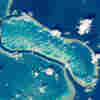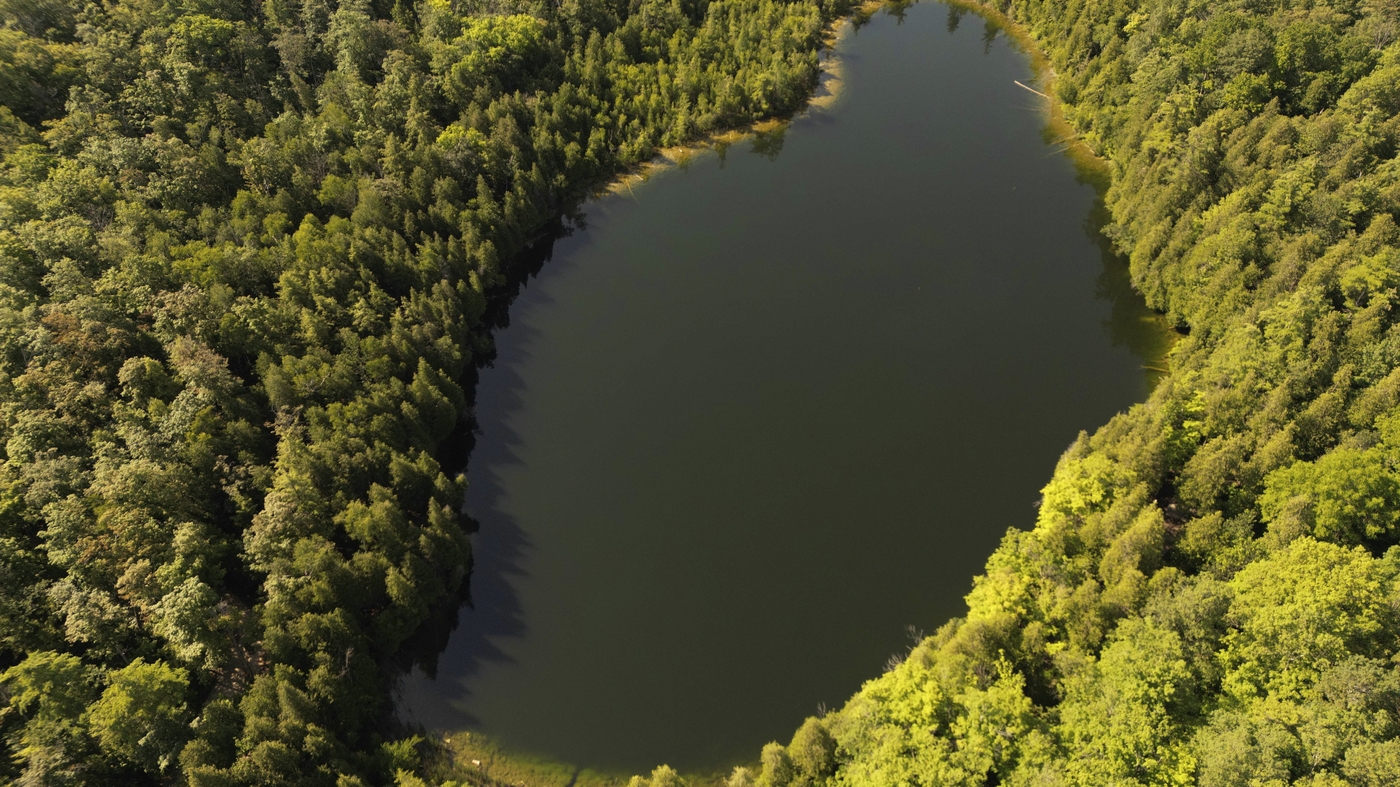
Trees surround Crawford Lake in Milton, Ontario., on Monday, July 10, 2023. A team of scientists is recommending the start of a new geological epoch defined by how humans have impacted the Earth should be marked at the pristine Crawford Lake outside Toronto in Canada.
Cole Burston/The Canadian Press via AP
From climate change to species loss and pollution, humans have etched their impact on the Earth with such strength and permanence since the middle of the 20th century that a special team of scientists says a new geologic epoch began then.
Called the Anthropocene — and derived from the Greek terms for “human” and “new” — this epoch started sometime between 1950 and 1954, according to the scientists. While there is evidence worldwide that captures the impact of burning fossil fuels, detonating nuclear weapons and dumping fertilizers and plastics on land and in waterways, the scientists are proposing a small but deep lake outside of Toronto, Canada — Crawford Lake — to place a historic marker.

“It’s quite clear that the scale of change has intensified unbelievably and that has to be human impact,” said University of Leicester geologist Colin Waters, who chaired the Anthropocene Working Group.
This puts the power of humans in a somewhat similar class with the meteorite that crashed into Earth 66 million years ago, killing off dinosaurs and starting the Cenozoic Era, or what is conversationally known as the age of mammals. But not quite. While that meteorite started a whole new era, the working group is proposing that humans only started a new epoch, which is a much smaller geologic time period.
The group aims to…
Read the full article here

Leave a Reply